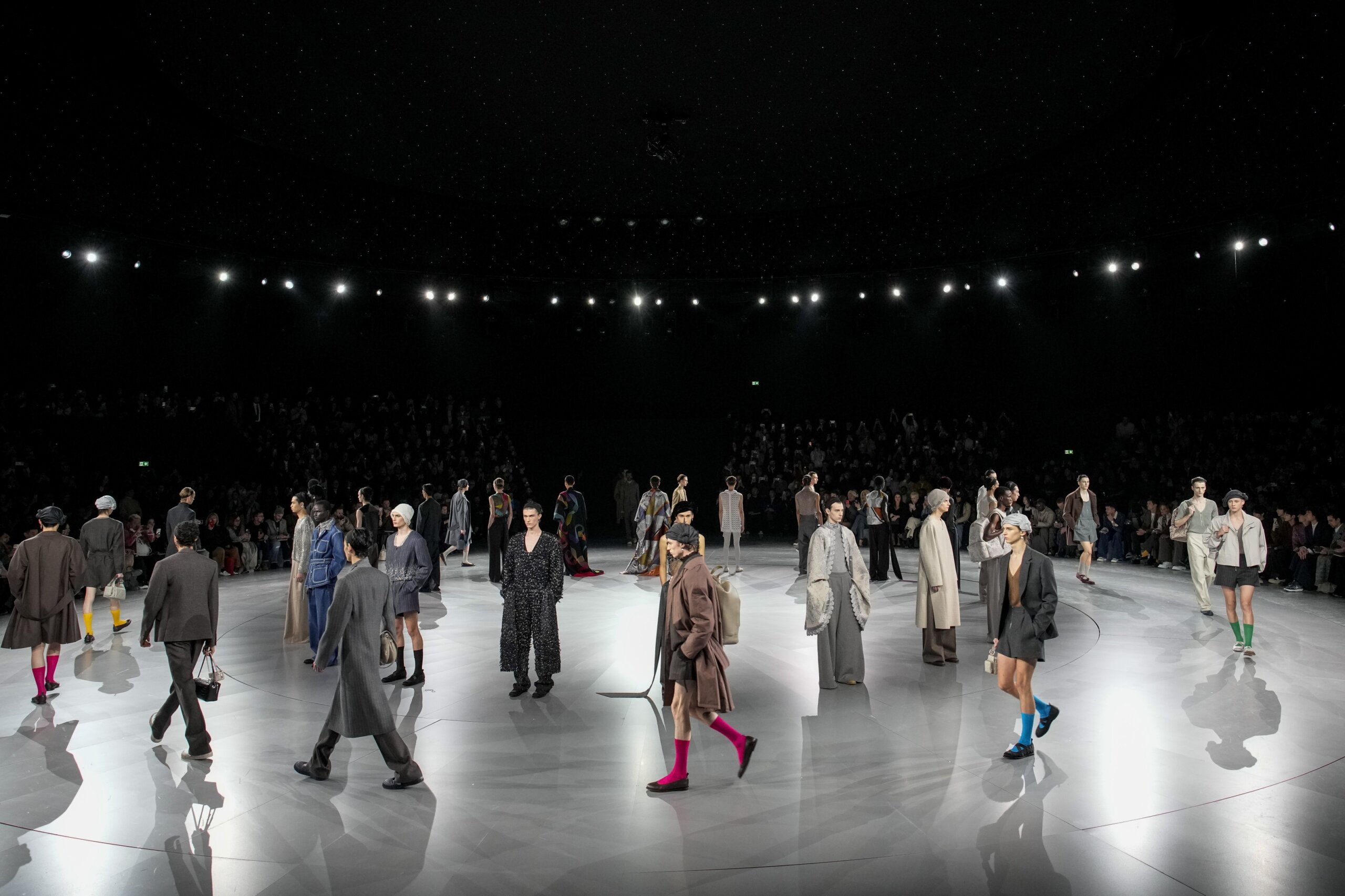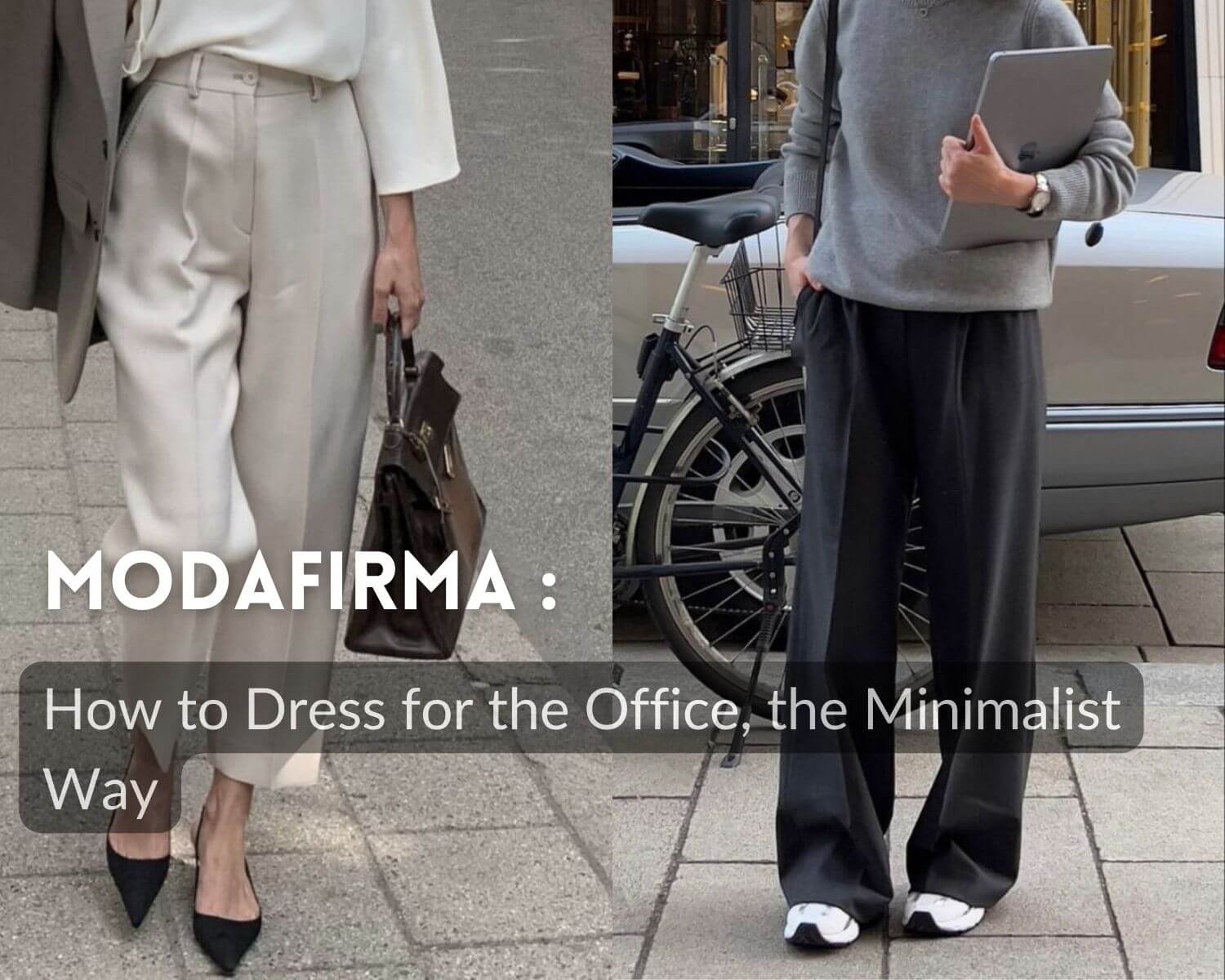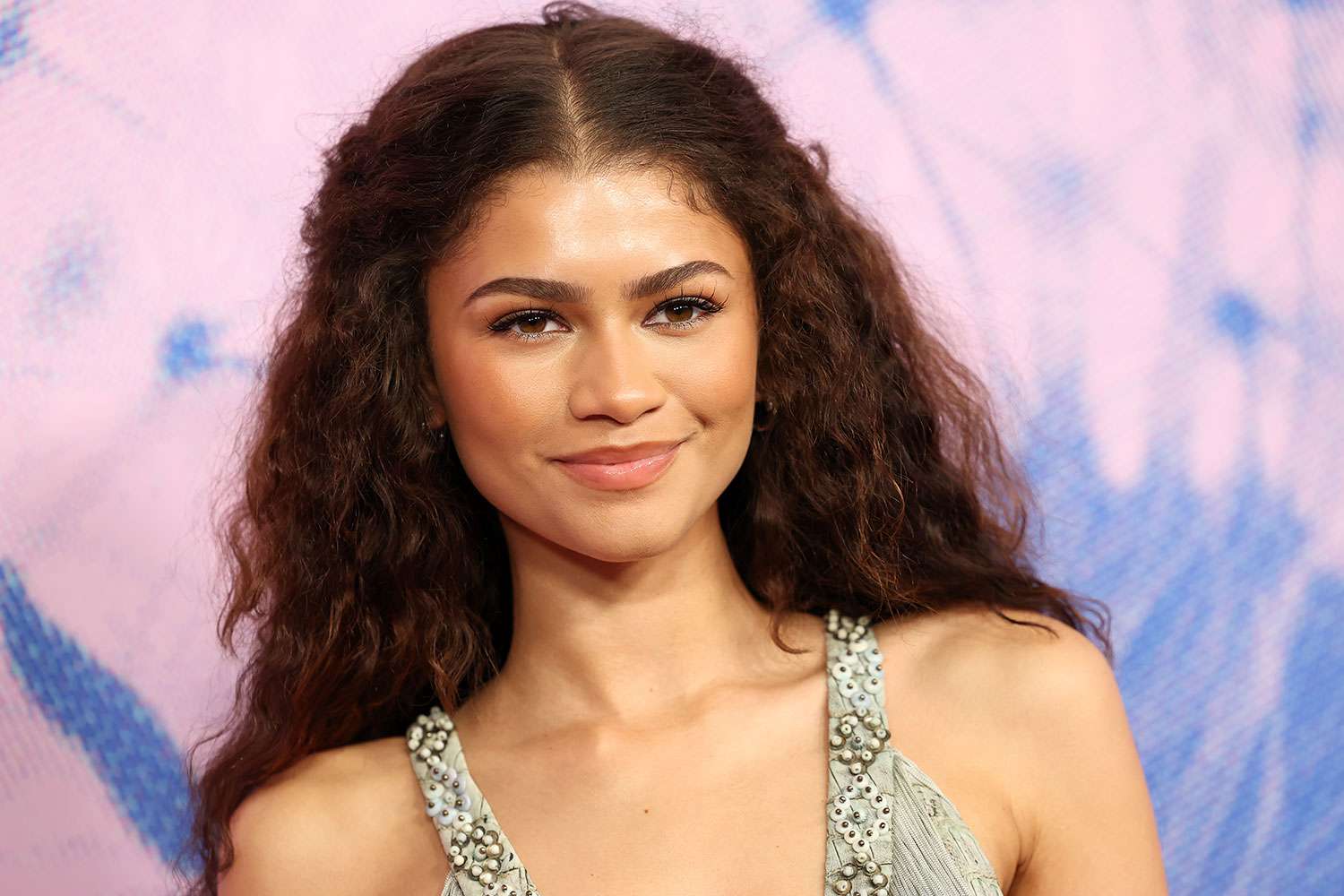Table of Contents
PARIS (AP) — Dior’s menswear maestro Kim Jones transformed a sunny afternoon in Paris into a starlit evening of balletic…
PARIS (AP) — Dior’s menswear maestro Kim Jones transformed a sunny afternoon in Paris into a starlit evening of balletic grandeur at Paris Fashion Week, in a display of fashion theatrics.
Inspired by the legendary ballet icons Margot Fonteyn and Rudolf Nureyev, Jones delivered an exuberant spectacle at the Ecole Militaire annex on Friday.
Amid the haunting melodies of Sergei Prokofiev’s “Romeo and Juliet,” the collection intertwined Dior’s fine tailoring with a joyful explosion of theatrical glamour. It drew screams and cheers from a VIP audience — as it explored the duality of an artist’s persona onstage and backstage.
Here are some highlights of the fall-winter 2024 men’s shows:
DIOR’S BALLET STARS
In a front row as starry as the simulated night sky above, luminaries like Lewis Hamilton, Bill Nighy, Kate Moss, Nicholas Hoult, Rita Ora, Princess Eugenie and Pharrell Williams witnessed a fashion ballet that transcended the traditional runway. Their presence underscored the collection’s appeal to a diverse audience, from royalty to pop culture icons.
Jones’ mastery in blending traditional codes with modernity was evident. Muted beiges and grays, signature to Dior’s palette, were enlivened with exuberant bursts of color — saffron yellow socks, lilac blue sandals, and handbags, and vividly striped sweaters.
The pieces de resistance included a gleaming Renaissance cape-shawl with silver scallop fringe and woolen coats reinvented with double sleeves, cascading down poetically.
Echoing Jones’ own words, “The collection, or rather collections, are about contrast: the contrasts in the House of Dior in terms of ready-to-wear and haute couture. It’s the difference between onstage and backstage; the life of Nureyev theatrically and in reality.”
This sentiment was captured in contrasts between the subdued tones and tailoring of the first half of the show and the shimmer, gleam and sparkle that dominated the latter part in a dazzling crescendo.
The collection verged on the encyclopedic. A silver Uchikake kimono paid homage to Nureyev’s lavish style. Alongside this were modern silhouettes — sleek trousers and ribbed knits, each a testament to Jones’ contemporary flair.
As the show culminated, the audience was left half in awe and half grappling for their cameras as the neon stage rose up like a sci-fi movie carrying the models into the air. Thus it melded styles from the past with a futuristic, space-age edge.
NIGO’S SOFT KENZO WARRIORS
In a fashion-forward fusion of traditional themes and streetwise flair, designer Nigo’s Friday night show for Kenzo whispered of soft warriors and echoed the brand’s past.
This season’s collection signified a slight departure from the previous spring’s focus on preppy and collegiate themes.
Nigo began fall with an reinterpretation of checks — a microscopic view transforming into blown up patterns, with silhouettes comprising broad shoulders and cascading lapels. A highlight was a pastel furry vest, resembling armor, yet with a streetwear edge. This piece, adorned with a diagonal black strap reminiscent of an Asian sword tie, encapsulated the theme of “soft warriors.” Likewise, so did the martial arts-style belts adorning several women’s outfits.
Nigo, Kenzo’s first Japanese designer since founder Kenzo Takada, stepped into the spotlight in his January 2022 debut, marking a pivotal moment in fashion history. His journey, from the vibrant streets of A Bathing Ape to the luxurious corridors of Kenzo, reflects a shift in the industry’s approach to diversity and creativity.
The parallels between Nigo and Takada are striking. Both share Japanese roots, attended the same Tokyo fashion college, and possess an East-meets-West artistic vision. Nigo’s tenure at Kenzo brings a blend of his streetwear heritage and the house’s traditional motifs.
JUNYA WATANABE’S THRIFT-SHOP CHIC
Junya Watanabe unveiled a collection that was a masterful blend of eerie mood-setting and aggressive urban fashion. The spot-lit runway, casting elongated shadows, set the stage for a show that echoed Watanabe’s long-standing tradition of avant-garde experimentation and cultural fusion.
The models, sometimes adorned with black punk-styled hair and draped in billowing jewelry, walked down the runway in dark ensembles that seemed to capture the essence of Watanabe’s unique design ethos.
Their attire, a chaotic yet intentional layering of styles, evoked the sense of a meticulously curated thrift shop adventure. This approach, reminiscent of Watanabe’s earlier works, highlighted his ability to transform the shambolic into the sublime.
The clothes featured a mix of traditional tailoring and streetwear elements, a nod to his 2001 debut when he first merged high fashion with everyday wear. The collection’s tailored jackets were reinterpreted with the house’s unique perspective, blurring the lines between formal and casual.
This creative contradiction was seen in the use of unconventional fabric combinations and turning classic silhouettes into something very contemporary. The eclectic, layered pieces, seemed to embody the spirit of Watanabe’s philosophy: a fusion of the traditional and the avant-garde.
Copyright
© 2024 The Associated Press. All rights reserved. This material may not be published, broadcast, written or redistributed.




